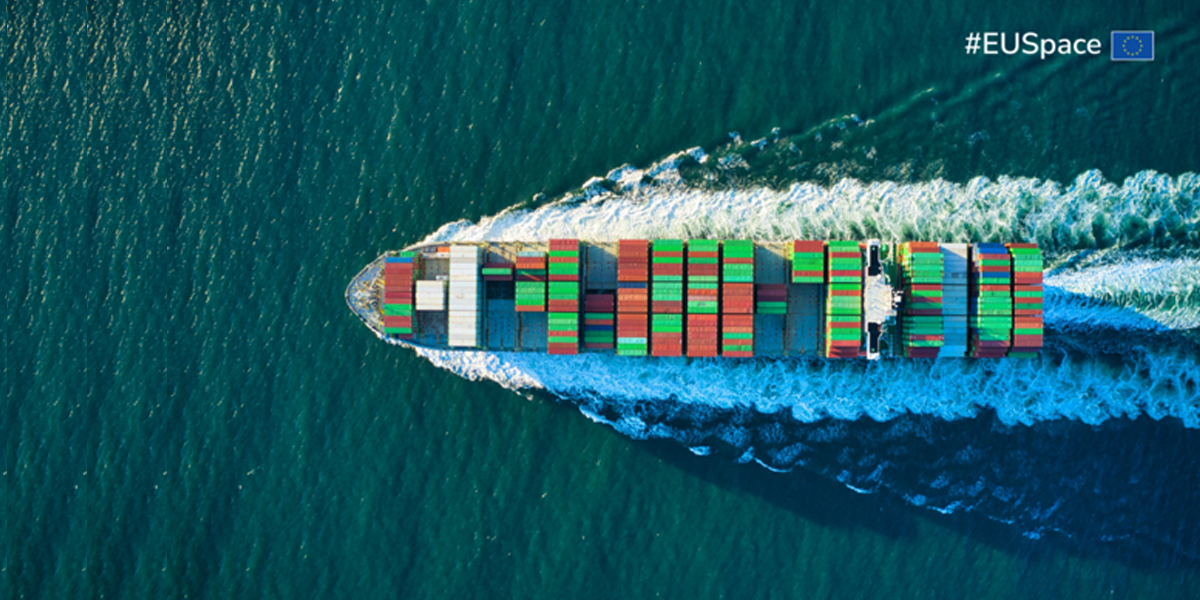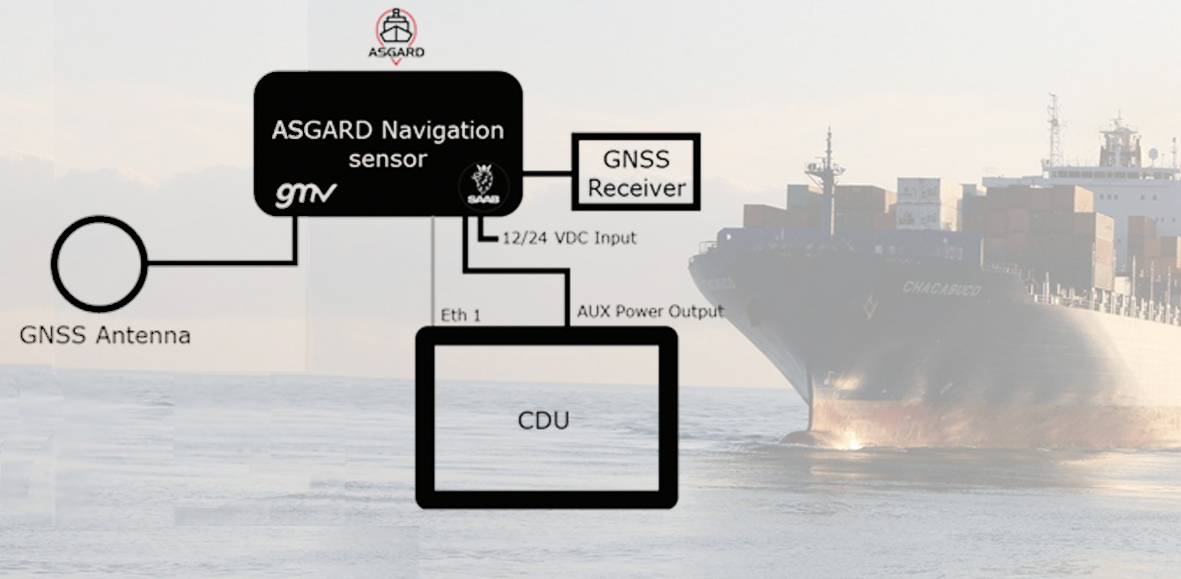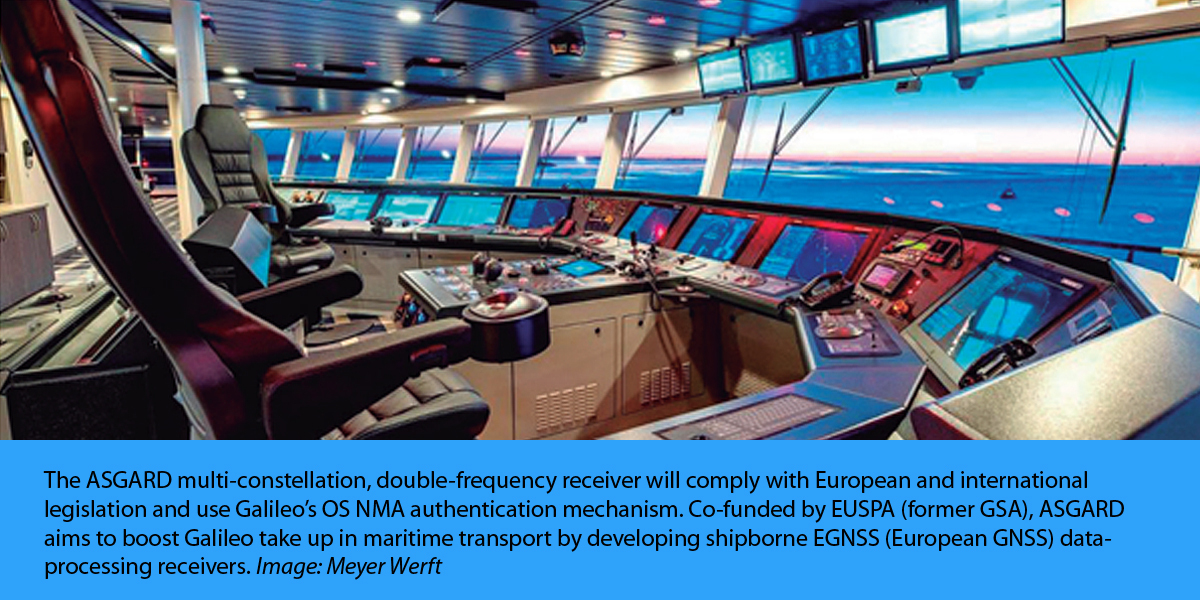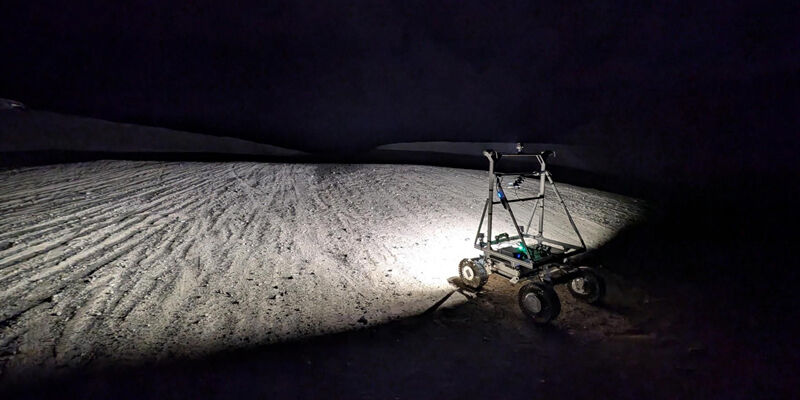The global shipping industry, the backbone of the world economy, is particularly vulnerable to a range of security threats. One of those threats is GNSS spoofing.

GNSS is a critical technology used in maritime navigation systems. It enables vessels to determine their position, speed and time by receiving signals from satellites. Unfortunately, malicious actors can rather easily spoof these signals to provide unreliable or even fake positioning information.
Such false information can cause a ship to change course, which is exactly what happened to ATRIA, a 37,500-ton tanker, in 2017. The ship’s captain thought he was near Gelendzhik Airport – at least that’s where the ship’s GNSS coordinates told him. In reality, it was positioned just off the port of Novorossiysk, about 20 nautical miles (37 kilometres) from the airport. ATRIA was by no means alone, at least 20 other nearby and equally unaware ships were in the same location.
Not only can spoofing lead to accidents and other safety hazards, it also opens the door to potential threats to national security. In 2019, Iran seized a UK-flagged oil tanker located in the Strait of Hormuz on the grounds that it had violated international law. After careful analysis of the ship’s positioning data, it was confirmed that spoofing was involved.
Protection by detection
These are by no means isolated incidents. Spoofing attacks happen all the time and around the world. In an increasingly sophisticated landscape of aggression, they’ll likely happen more often and be even more complex.
Without proper countermeasure methods, spoofing attacks will continue to pose a serious threat to maritime safety. The challenge is that in order to mitigate a spoofing attack, a ship first needs to be aware of the attack.
Enter ASGARD, the ultimate anti-spoofing weapon for maritime security.
Co-funded by EUSPA and coordinated by Saab and GMV, the ASGARD project is developing cutting-edge technology to counter ongoing GNSS spoofing activities. “ASGARD functions using a protection by detection strategy,” says Ana Cezón, who heads the Advance Navigation Division at GMV. “It is designed to detect and prevent GNSS spoofing attacks in real environment, ensuring that ships can navigate safely and securely.”
GMV and Saab are two leading companies with a long-standing reputation in the field of maritime communication and navigation.
Leveraging the Galileo OSNMA service
At the heart of this protection by detection strategy is a multi-constellation, anti-spoofing GNSS receiver that leverages the Galileo Open Service Navigation Message Authentication (OSNMA) service to authenticate the navigation message. The free access service complements the Galileo Open Service (OS) by delivering authenticated data, assuring users that the received Galileo navigation message is coming from the system itself and has not been modified.
Thanks to its use of the OSNMA service, Galileo satellites can send a key and digital signature that the ASGARD receiver uses to verify the authenticity of the signal via its own public key. If the receiver detects a signal that cannot be authenticated, it immediately alerts the operator of a potential spoofing attack and prompts them to take alternative measures to validate the vessel’s position.
The system also offers an innovative integrity solution that ensures the reliability and safety of the system.


Ensuring the safety and security of crew and cargo
Still in development, ASGARD will soon undergo real-time testing where it will be put through a series of spoofing attacks to ensure it delivers within set specifications. Once complete, the system is expected to have a significant impact on the maritime industry, improving safety and security for both vessels and crews.
“ASGARD will provide an effective response to spoofing attacks by ensuring that vessels stay on course and are not lured off by attackers,” says Peter Bergljung, Head of Strategy at Saab. “With ASGARD, vessel owners and operators can have peace of mind knowing that their vessels are equipped with cutting-edge technology that provides protection against spoofing attacks and helps ensure the safety and security of the crew and cargo.”
Once certified according to maritime safety regulations (SOLAS) and maritime standards (IEC), ASGARD is also expected to boost the uptake of Galileo within the maritime sector.
Source: European Union Agency for the Space Programme (EUSPA) https://www.euspa.europa.eu/
Subscribe to our newsletter
Stay updated on the latest technology, innovation product arrivals and exciting offers to your inbox.
Newsletter

